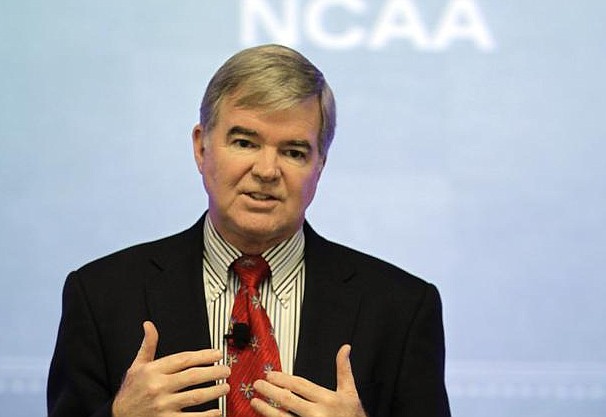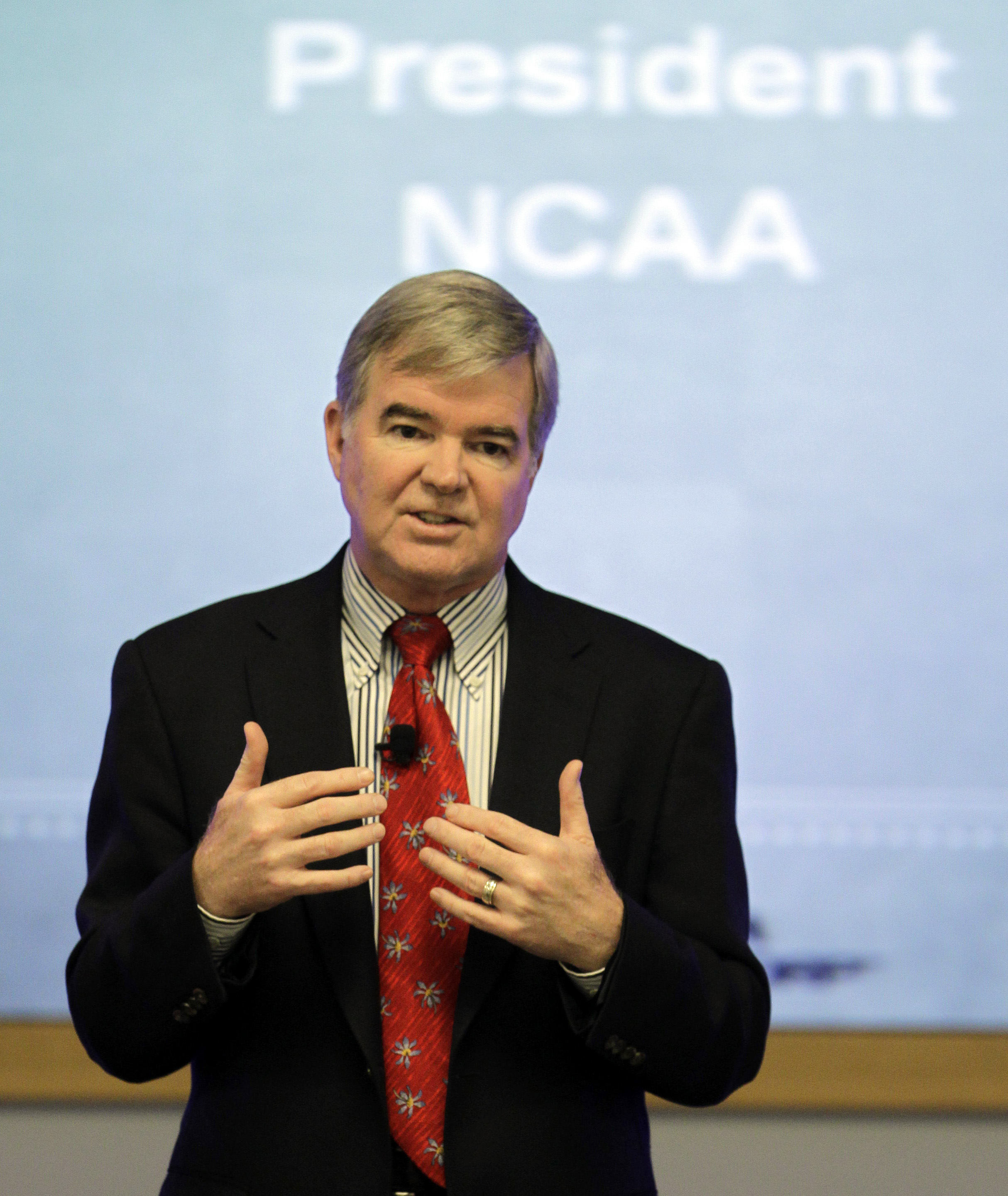For far too long, the unspeakable scandal involving Jerry Sandusky and Penn State had been washed in secrets and covered in shadows.
His evil was undeniable, but somehow, someway the powerful men in the small pond that is State College, Pa., were unwilling or unavailable or unprepared to deal with it.
Well, amid the silence, Mark Emmert and the NCAA came out screaming Monday. Screaming for the victims. Screaming for the innocent. Screaming at everyone involved in the Sandusky nightmare if for no other reason than silence was allowed to canvas the worst among us.
A day after the iconic statue of Joe Paterno was removed, Emmert's message was delivered in measured tones, but it came across at 1,000 decibels. The penalties - $60 million fine, loss of 20 football scholarships per year for the next four years, a four-year postseason ban and the eradication of every Penn State win since 1998 - were staggering.
The news delivered the death blow to Paterno's legacy, erasing any doubt that the silence perpetrated at Penn State by Paterno and the most powerful administrators at the school never would be forgiven or forgotten.
The NCAA decided against handing Penn State the death penalty, the most nuclear of the bombs in the arsenal of the governing body of college sports, that bans a team from operating for at least one season. Reviewing the punishments handed down Monday, apparently the NCAA thought the death penalty would have been too swift.
Instead, the program will bleed a slow and painful withdrawal from the status of the haves to the doldrums of the have-nots. This was not the death penalty, but it was close in effect and just as harsh in intent. It was not death, but it was just as painful.
Emmert said he believed these penalties reflect "the magnitude of these terrible acts" and also "ensure that Penn State will rebuild an athletic culture that went horribly awry."
You could argue that it was too much, punishing the lot because of the sins of the few many moons ago. You'd be right, but that position is undermined because at worst it's defending and at best downplaying the sins of a child predator and his enablers. Punishing the innocent at Penn State because the innocent were tortured hardly seems just, but when have the sins of the fathers not been felt by the sons? And if ever there was a father of a program it was Joe Pa at Penn State.
You could also argue that it was not tough enough, that if the NCAA was ever going to use the death penalty this was the case. You'd be right, too, but that decision would have nuked an entire town economically because Sandusky was the devil and the silent partners of Paterno, Spanier, Curley and Schultz cared more about protecting their legacies and their program that protecting children. Yes, the sins of the masses can affect the many, but do those sins need to kill the majority?
Remember that the entire Penn State athletic department - from archery to volleyball - will be hampered by this. The collateral damage on the smaller sports programs seems as unjust as the fact that Paterno was stripped of 111 wins and dropped from the career leader in victories to eighth all-time seems appropriate. After all Paterno's love of his legacy and his protection of his program were the chief factors in his deafening silence.
So where are we this morning, in the wake of the "unprecedented" punishments handed down quickly and firmly by Emmert?
We know Emmert's action was not without heavy counsel and consideration. By all reports, Emmert has been consumed by this case since learning of it last November. And to be fair, this has to be the first instance ever that there were complaints that the NCAA moved too quickly.
We know Emmert deeply believes this is the right thing. He has stepped on a slew of toes and surely has put his job on the line with this move.
We know that Emmert is bound and determined to change the image and the role of the NCAA as the policing agent of college football. Does that mean Penn State was used as an example? Well, in some ways, absolutely. But that happens in all walks of life and in the wake of scandals and coverups of this magnitude.
We know that the future role of the NCAA and its rule book will be much bigger in scope and direct in its language than the current mumbo-jumbo that is in place. Gone are the days where there is hand-wringing about too many text messages during the wrong month or secondary violations because this prospect's name was mentioned on the radio. There are bigger problems in college sports.
Chief among them is its image. And that image for far too long has eroded by the lack of teeth and consistency by the NCAA governing body. Emmert's action Monday certainly answered the former, and let's all pray he never has to apply this precedent again.
Was he screaming to hear his own voice in a sea of outrage or to answer for the years sinful silence? We'll only truly know if we never have to ask that question again.
Contact Jay Greeson at jgreeson@timesfreepress.com or 423-757-6273.

